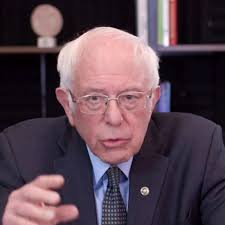Today it is now broadly acknowledged that the war in Iraq, which I opposed, was a foreign policy blunder of enormous magnitude.
In addition to the many thousands killed, it created a cascade of instability around the region that we are still dealing with today in Syria and elsewhere, and will be for many years to come. Indeed, had it not been for the Iraq War, ISIS would almost certainly not exist.
The Iraq war, as I said before, had unintended consequences. It was intended as a demonstration of the extent of American power. It ended up demonstrating only its limits.
For many years, leaders across the world had become increasingly concerned about the possibility of an Iranian nuclear weapon. What the Obama administration and our European allies were able to do was to get an agreement that froze and dismantled large parts of that nuclear program, put it under the most intensive inspections regime in history, and removed the prospect of an Iranian nuclear weapon from the list of global threats.
That is real leadership. That is REAL POWER.
Just yesterday, the top general of U.S. Strategic Command, General John Hyden, said: "The facts are that Iran is operating under the agreements the we signed up for." We now have a four-year record of Iran's compliance, going back to the 2013 interim deal.
I call on my colleagues in the Congress, and all Americans: We must protect this deal. President Trump has signaled his intention to walk away from it, as he did the Paris agreement, regardless of the evidence that it is working. That would be a mistake.
Not only would this potentially free Iran from the limits placed on its nuclear program, it would irreparably harm America's ability to negotiate future nonproliferation agreements. Why would any country in the world sign such an agreement with the United States if they knew that a reckless president and an irresponsible Congress might simply discard that agreement a few years later?
If we are genuinely concerned with Iran's behavior in the region, as I am, the worst possible thing we could do is break the nuclear deal. It would make all of these other problems harder.
Another problem it would make harder is that of North Korea.
Let's understand: North Korea is ruled by one of the worst regimes in the world. For many years, its leadership has sacrificed the well-being of its own people in order to develop nuclear weapons and missile programs in order to protect the Kim family's regime. Their continued development of nuclear weapons and missile capability is a growing threat to the U.S. and our allies. Despite past efforts they have repeatedly shown their determination to move forward with these programs in defiance of virtually unanimous international opposition and condemnation.
As we saw with the 2015 nuclear agreement with Iran, real US leadership is shown by our ability to develop consensus around shared problems, and mobilize that consensus toward a solution. That is the model we should be pursuing with North Korea.
As we did with Iran, if North Korea continues to refuse to negotiate seriously, we should look for ways to tighten international sanctions. This will involve working closely with other countries, particularly China, on whom North Korea relies for some 80 percent of its trade. But we should also continue to make clear that this is a shared problem, not to be solved by any one country alone but by the international community working together.
An approach that really uses all the tools of our power -- political, economic, civil society -- to encourage other states to adopt more inclusive governance will ultimately make us safer.
Next Page 1 | 2 | 3 | 4 | 5 | 6 | 7
(Note: You can view every article as one long page if you sign up as an Advocate Member, or higher).





